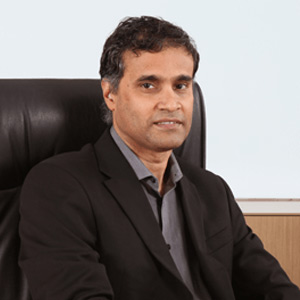The epidemic of ‘pill to pillow’ needs to be addressed by centring healthcare around the needs of the patient in a manner that makes ‘kill the pill’ a motto for everyone

What would you rather spend your dollar on-getting well or being well? As simplistic as it may seem, for years India and several other countries have been doing exactly the opposite. Mortality and Morbidity be damned, we continue junking our health often with detrimental lifestyle choices. Worse case there is always a pill if we hit the pillow! The epidemic continues to spread.
The inevitability of an aging mind and weakened body long been forgotten. Pilates and workouts mostly keep us looking good but are we giving our mind and body what it needs or are we simply letting “unpredictability” knock at our doorstep. And yet we blame our health problems on perennial issues of skewed healthcare infrastructure, mounting healthcare expenses and feel the “government” isn’t doing enough!
Little do we realise that India needs at least 75% of the population to be covered to considerably bring down the expenditure on healthcare and if the high incidence of ‘preventable’ lifestyle diseases is prevented or detected early, it can considerably reduce the healthcare spend. For instance, diabetes is a preventable disease. Adopting preventive care can help find an early cure and bring down the costs. The Parochial approach towards the healthcare system is now affecting the per capita cost on healthcare. Indian government spent 1.3% of GDP on healthcare in 2015-16, abysmally low but almost all of it is for curative purposes. Unfortunately, India’s healthcare delivery system does not support a preventive care methodology and when illness strikes, most people bear the cost of treatment from their own incomes.
Our cookie cutter mindset fails to realise that each individual has his own genetic makeup and needs to be treated differently. Taking 10,000 steps on a pedometer in isolation isn’t a walk towards wellness.
Most importantly, it requires radically realigning healthcare priorities. Episodic, reactive ‘fix’ or dealing with a health issue needs to be replaced with pre-emptive therapies. The ‘amplified spend’ on late stage disease management can very well be contained through early detection, timely interventions and more importantly better focus on wellness.
The preventive care system can be enhanced using futuristic technological modules such as Artificial Intelligence (AI), SMAC, Internet of Things (IoT) and Big Data Analytics.
The ability to predict the risk of a specific disease or medical condition based on the individual’s genetic profiling finds its roots in mining accurate and robust personal health data. Which, in the IoTised world of device integration, is now not only a possibility but also lends itself into AI and use for clinical decision support systems for more accurate diagnosis and better clinical interventions.
Furthermore, technology enables bridging geographical gaps in the heath eco-system by helping the population avail consultations via video calling and electronically connecting with medical practitioner sitting miles away.
Technology can also go a long way in recognising localities as per disease prevalence and take proactive steps.
Technology enables bridging geographical gaps in the heath ecosystem by helping the population avail consultations via video calling and electronically connect with medical practitioner sitting miles away
The future of healthcare is a journey that requires each one in the ecosystem to accept, adopt, practice and embrace two key things:

Reflex mechanisms aside, the human mind is naturally habituated to what’s not good for it. The mind reads what it seeks in most instances and then we have Google to confirm what we believe is right or wrong with us. Generic messages are noise in today’s word smitten world. To progress towards a well-being focused lifestyle, we need to get “smarter” and for that there are several smart sensors and devices-digital mirrors, sleep tracker mattresses, smart scales and plenty of app on the smart phones. Copious amounts of unstructured data are being collected at every touch point and yet we are caught unaware when a medical condition hits us. This needs to change-we need to get smarter with what we are doing with this information and use what’s being tracked to get back on track.
But with the hectic pace of everyday lives, we have muted the shout outs from these smart devices. Or in worst case, we hear the voice but are not sure how we can link this information with our health plan. A diagnostic report cannot be deciphered easily; a smart report on the other hand brings better insights both for the clinician and also for patient education.
Which is why we require a virtual health assistant who can string together the disparate information from multivariate sources, structure it in the required form and make it portable real-time. Most importantly, talk to us and help create a personalised health regimen, schedule timely check-ups and facilitate our healthcare needs end to end. A pit stop of sorts-yet in a non-intrusive way!
To progress towards a well-being focused lifestyle, we need to be ‘smarter’ and for that there are several smart sensors and devices-digital mirrors, sleep tracker mattresses, smart scales and plenty of apps on the smart phones
I am envisioning CallHealth’s three-dimensional platform that perfectly blends all entities within the healthcare eco-system, channelises them to the customer as per their needs and uses a robust health information system to collect, structure and analyze the data that is gathered from each source. Currently, our highly integrated platform enables the patient to connect with a doctor sitting miles away giving his consultation. Our patients’ health records are safely and securely recorded in our system data for it to be accessed and shared with professionals and family members, as and when required. We believe that by leveraging technology we can not only eliminate the tyranny of time and distance but also can bring healthcare to people in remote tier II areas.
Complex as it may sound, doing so with simplicity is science, which is the second point I would like to reflect upon.
The integration of big data is the much-awaited revolution in the Indian healthcare ecosystem. Big Data is a tool for new-age players like CallHealth to disrupt the traditional forms of healthcare delivery models and modernise approaches that keep patient at the centre of the entire process.
At CallHealth, every interaction with customers and their health data is recorded and processed under Clinical Decision Support System. Be it ‘Symptom to Disease’ or ‘Drug to Disease’ mapping, data scientists are not only looking at ways to better the diagnosis but are actively looking at predictive health modelling, pattern recognition and personalised care monitoring to predict, prevent and treat various health issues ranging from physical to mental disorders. A personalised and customised system of integrated healthcare delivery enables us to track and observe the health lifecycle of our customer base-patients. This real-time access to all patients’ records simultaneously makes it convenient for people, who are busier due to the prevalent lifestyle, who tend to defer health check-ups for a ‘later time’. Further, using probability and statistical trends, CallHealth is able to enhance the service portfolio and make those services readily available that correspond with the recurring diseases or issues. For example, in Hyderabad, we have been able to observe and record trends of the recurring diseases across the city.
Additionally, we foresee the market of smart devices in healthcare growing at a rapid pace in coming years. It will lead to significant reduction in the operational cost of healthcare service providers, further, making healthcare services far more effective and affordable.
CallHealth has well-integrated a wide range of smart devices (promotive, prognostic, diagnostic and therapeutic health devices) into its analytical architecture that stores all patient health data generated through these devices and doctor-patient interactions. With more and more data points getting stored, CallHealth’s platform is able to recognise complex health patterns, carry predictive analytics and make the whole healthcare experience more affordable, hassle-free and transparent.
The objective is to change the reactive cure mindset of the patients and the industry to preventive care. The shift is only possible with the use of future technologies at the most basic levels, such as building and maintaining portable electronic health records for all and using the intelligence derived from data to develop personalised health plans and better manage healthcare outcomes.
Which is why, we are actively partnering with Corporates to bring tailored health solutions for employees. The CallHealth- Healthcare Lounge is more than a physical clinic on-site, it is a hi-tech and hi-touch blended healthcare delivery model that:
Clearly, the epidemic of ‘pill to pillow’ needs to be addressed and the solution is in centring healthcare around the needs of the patient in a manner that makes ‘kill the pill’ a motto for everyone!
(T Hari is a multi-disciplinary leader, who-as the CEO of CallHealth, is laying the foundation for a disruptive healthcare services model that could be replicated globally.)